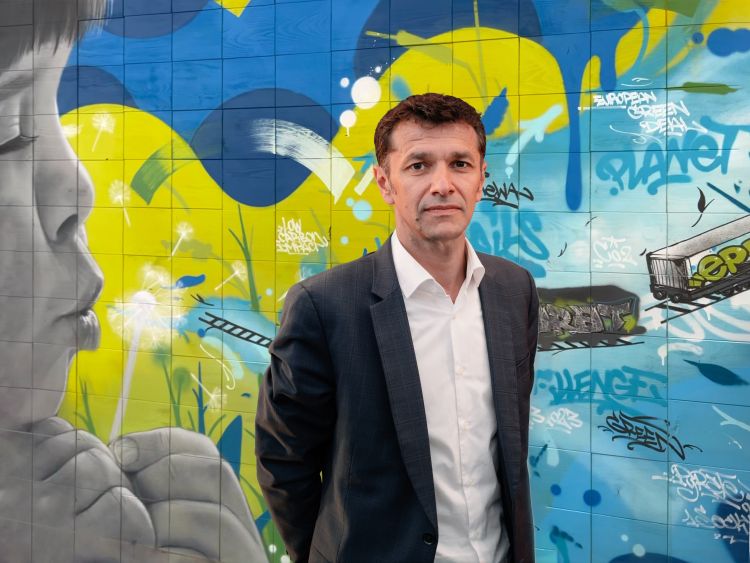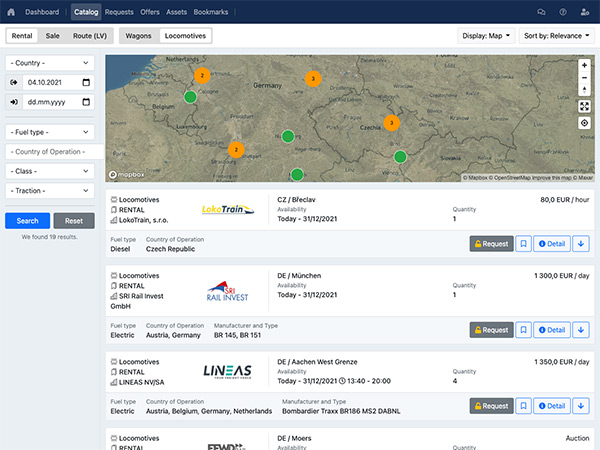RM: Your company offers more than 45,000 wagons. How much has the market changed during the energy crisis and the war in Ukraine (e.g. grain or coal wagons)? And how difficult has it been for your company to cope with the situation?
Cyrille Guyon: The increase in costs has had a substantial impact on rail freight, resulting in a significant shift in logistics and supply chain operations. Ukraine, as a key global supplier of raw materials, including grain and coal, has been affected by the transportation of these goods to markets outside of the country. The intermodal market, including the Silk Road, has also been negatively impacted. The energy supply from both Ukraine and Russia has been vital to many manufacturers and maintenance partners, however, the recent cost changes have necessitated a reassessment of the financial aspects of these relationships. Ultimately, this has had far-reaching consequences throughout the entire supply chain.
RM: You are a rental company. What is the situation regarding the production and purchase of new wagons? Are the manufacturers meeting the conditions? How much have prices for new wagons increased?
Cyrille Guyon: Ermewa serves as a key “catalyst” to enable modal shift and recognizes the importance of supporting infrastructure investment initiatives. In addition, the manufacturing industry is currently facing limitations in production capacity and dealing with rising energy costs. Despite this, there is still significant demand for their services. The industry has experienced double-digit inflation raging between 22-30% in labour, energy, and equipment costs.
Even though, we´re discussing the capacity bookings as our plan is very long-term. Ermewa is committed to investing in the acquisition of at least 3,000 newly built wagons every year until 2031, to achieve a fleet of 60,000.
We aim to fully address the construction industry and one of our top focuses remains the intermodal market.
RM: How are the rising energy prices in the sector affecting the overall situation in the supply chains?
Cyrille Guyon: As already said, the manufacturing and maintenance aspect has been significantly impacted by energy costs, for sure. However, it pales in comparison to the energy costs required to power trains. As a result, prices for RU and freight operators have doubled, which causes a significant impact.
Ermewa is committed to partnering with our clients and freight operators to achieve long-term carbon neutrality. As an example, we work closely with Arcellor Mittal on their decarbonization challenge by transporting recycled steel from our railcars. We prioritize developing efficient supply chain solutions in close collaboration with our customers.
RM: What do you do with the old wagons - I mean really old wagons (I know the whole world is trying to keep them for as long as possible)? Do you scrap them or sell them? What is the percentage of these options?
Cyrille Guyon: There are few drivers regarding the future of wagons. The first one is the regulations: to ensure safety on rail and perform our duty as ECM, wagons need to be recycled/scrapped at some point. The second driver is the commercial future of an older wagon: heavy refurbishment to give a new life cycle is a possibility. Every year, over 700 railcars are refurbished. Refurbishment extends the wagon’s lifetime by at least another 10 years.
However, if the wagon is unable to be refurbished, we recycle it while saving high-quality parts such as steel and other materials such as wood, and tarpaulins. An average of 2,000 railcars are recycled annually. 95-99% of the components are recyclable, and some of the spare parts are used on other wagons. In addition, we promote creative recycling by transforming materials into tables, bags or chairs for example. The circular economy has been in our DNA since our origins in 1956.
The second part of the interview with Cyrille Guyon, Deputy Managing Director at Ermewa, on the latest trends in wagon design and other topics will be published soon.

